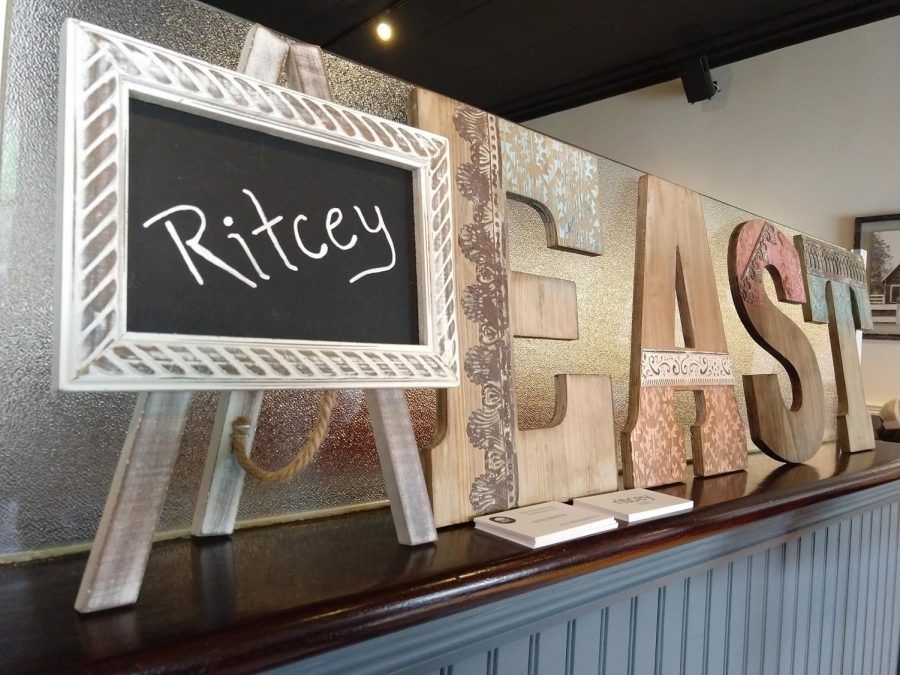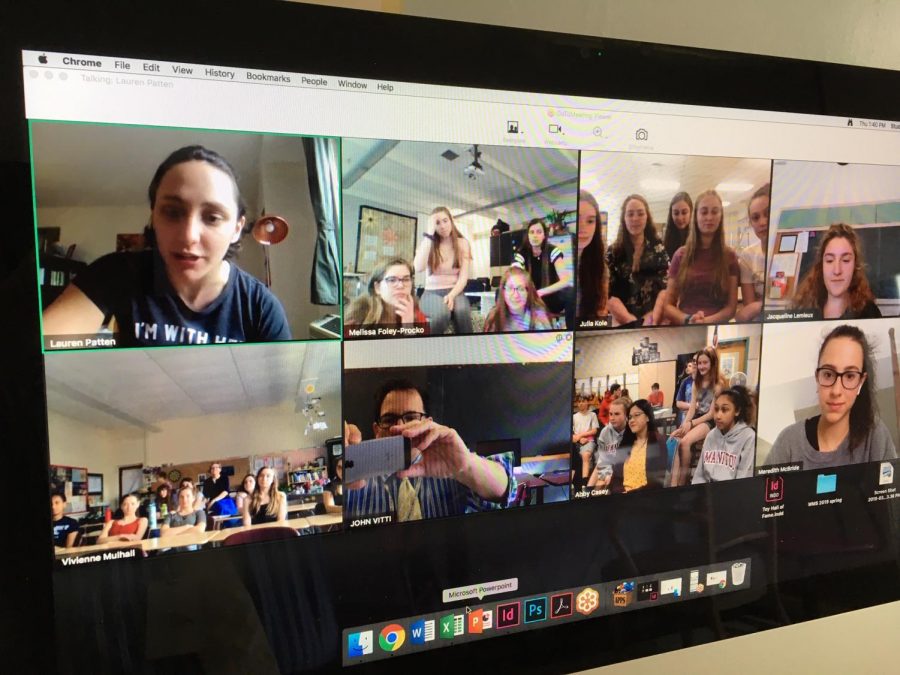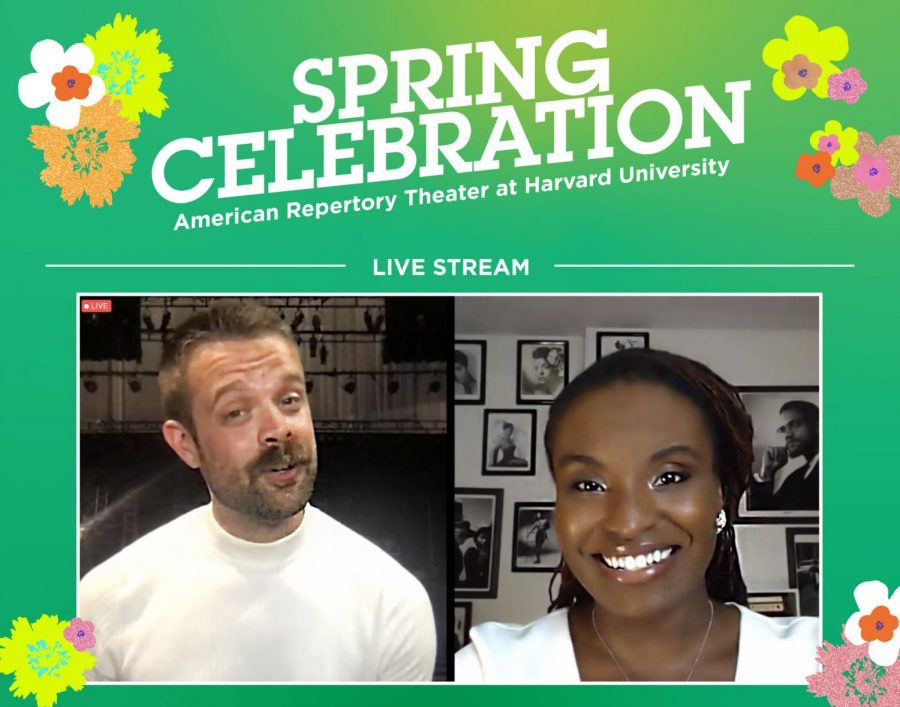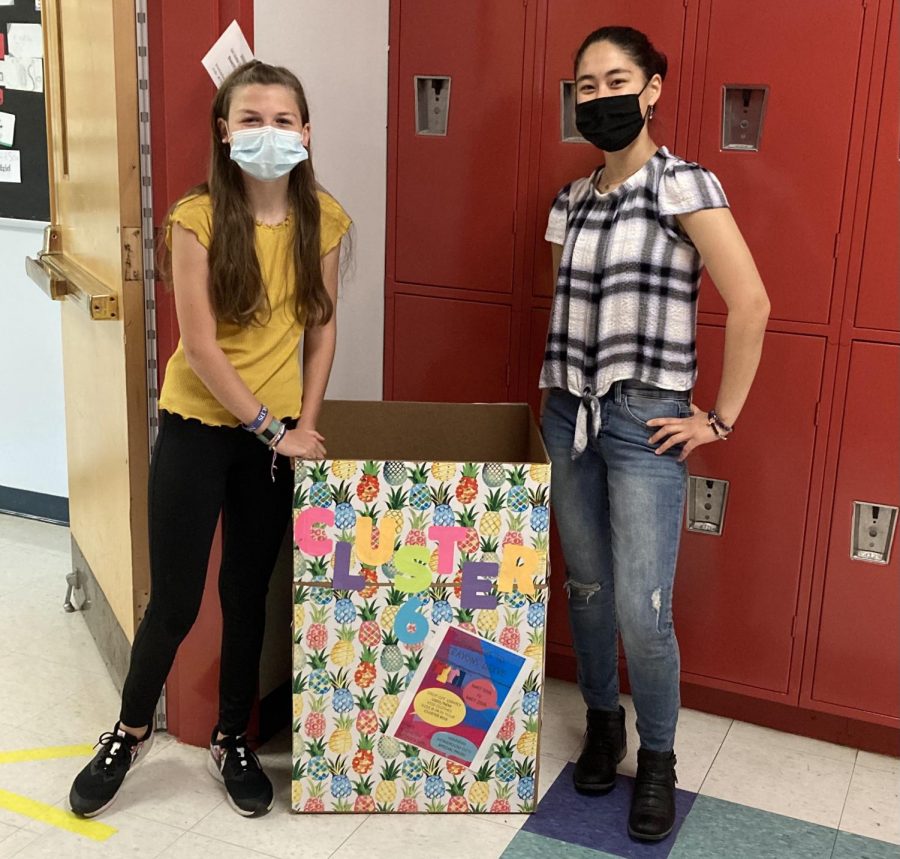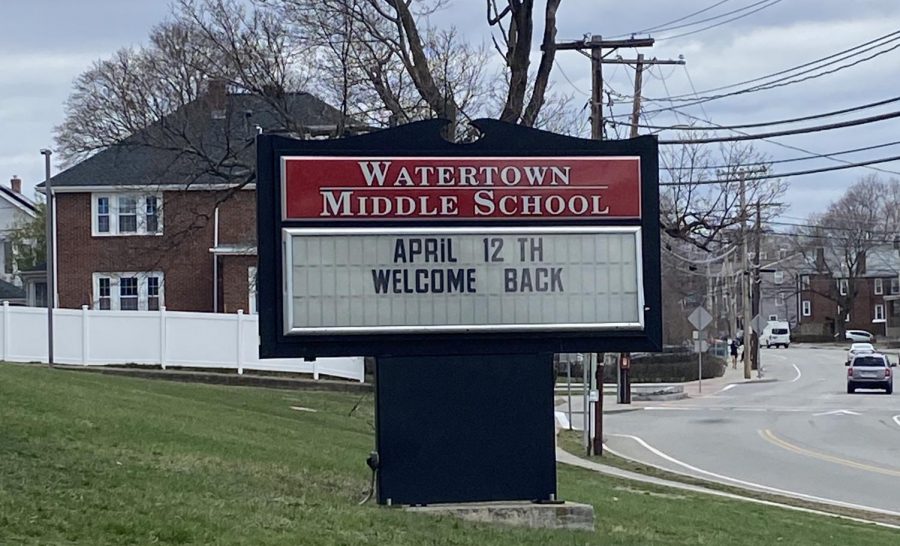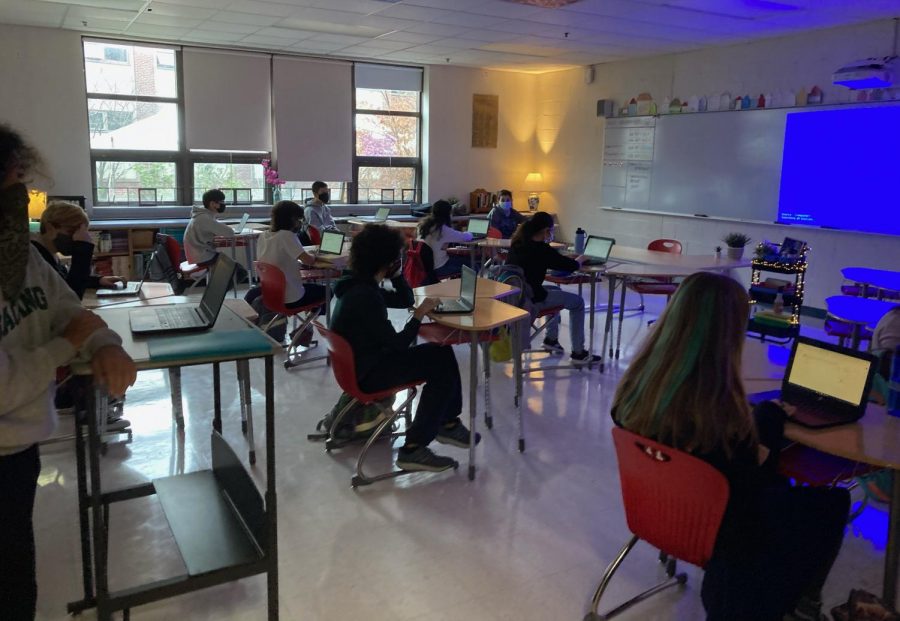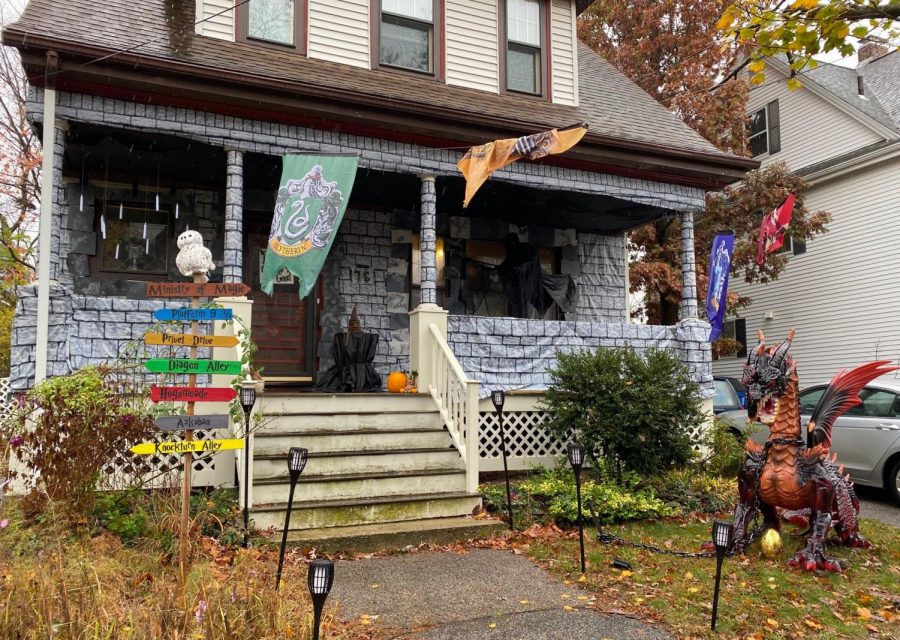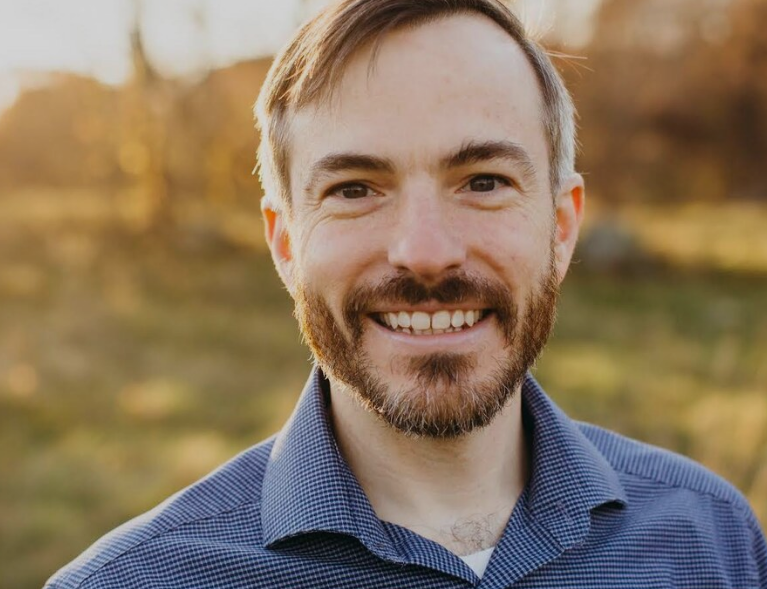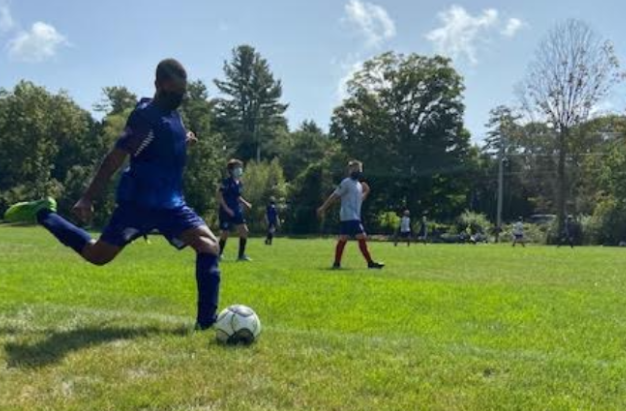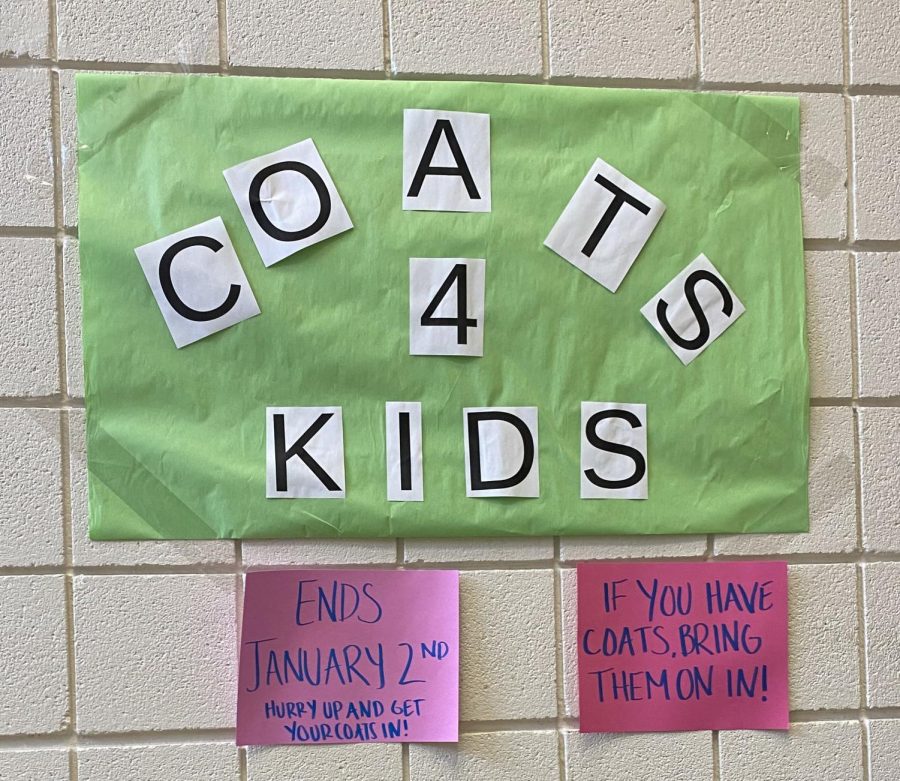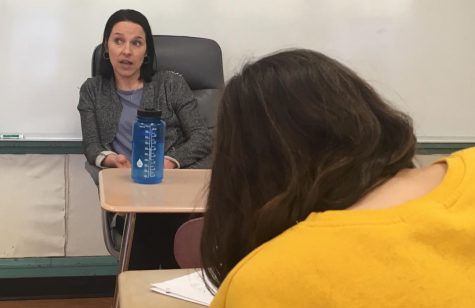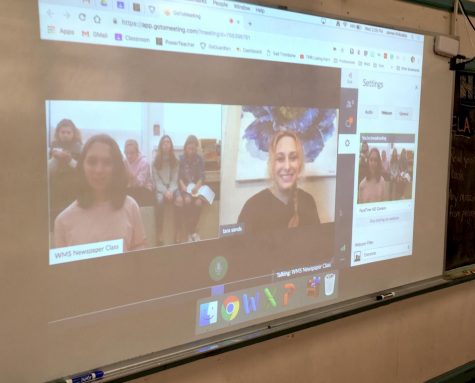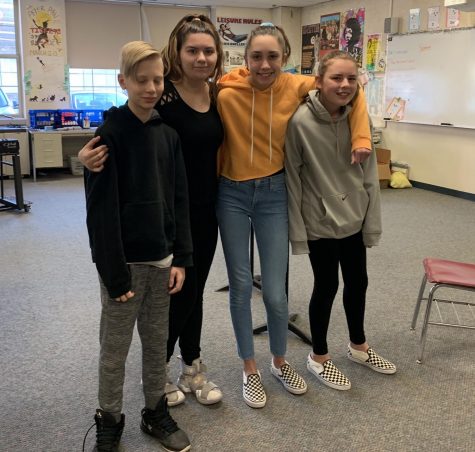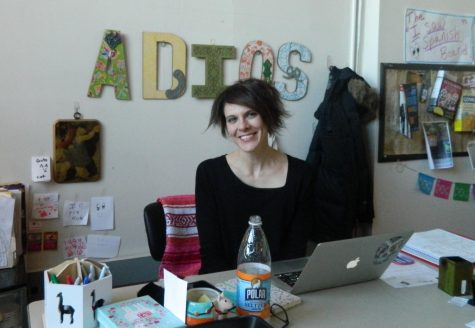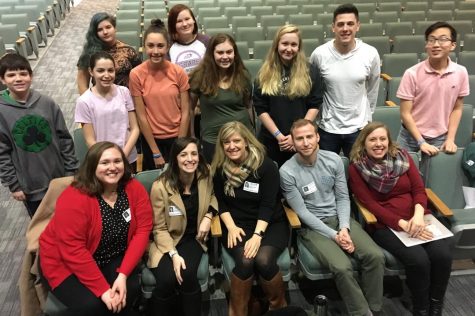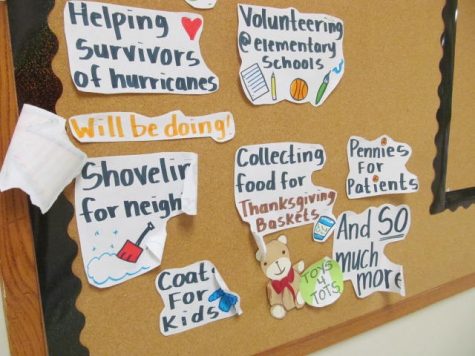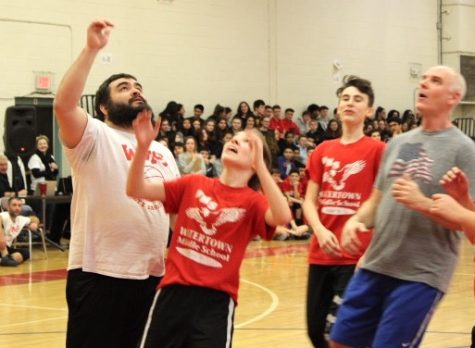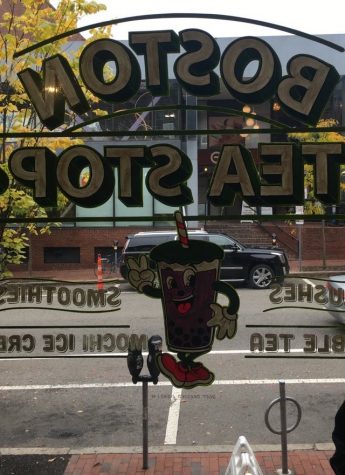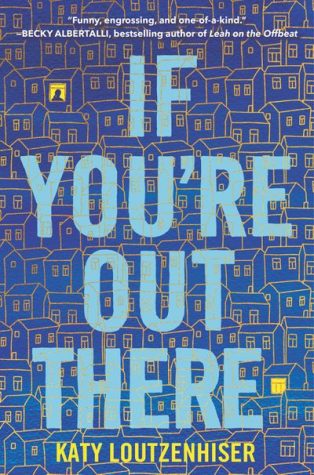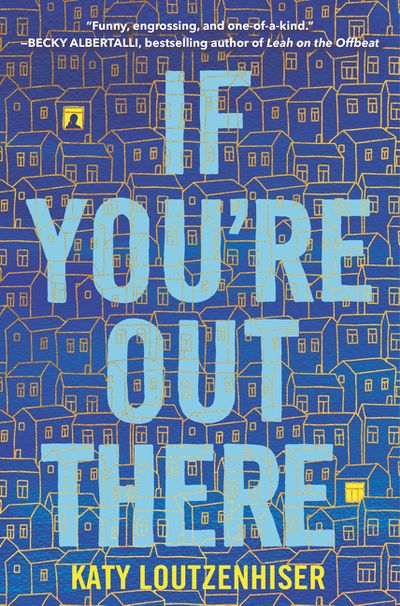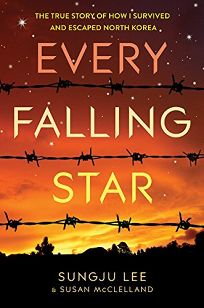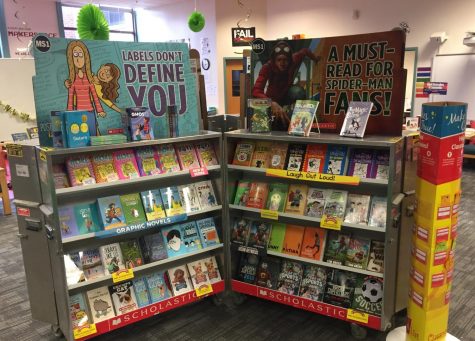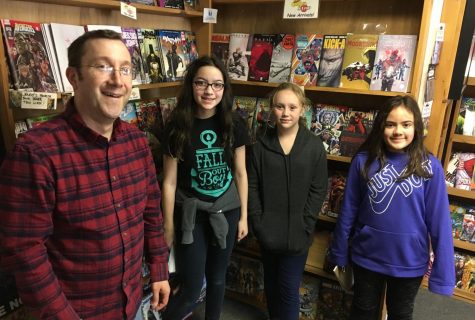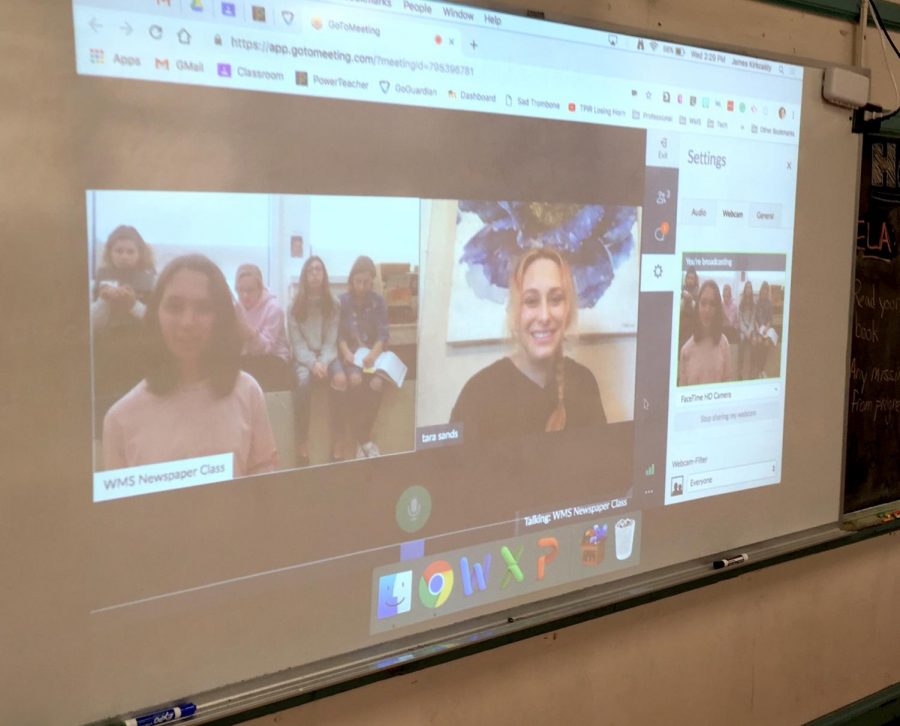Perkins builds for the future
Construction project brings noise, takes away playground
November 16, 2010
Perkins School for the Blind is not like any other school. Deaf and blind people from all over the country come to Watertown, Mass., to go to school there. These people have disabilities that affect their entire lives. On the school campus, there is construction going on behind the Lower School building. There’s a lot of discussion about of all of this ruckus.
Maggie Emberlin is a physical therapist who has worked at Perkins for five years. She feels she has done some good in this world and loves coming to work every morning to find kids in her office ready to be treated. It is easy for her to talk to disabled people. She has made some good friends and always has room for more.
“The construction workers have been working hard to include everyone’s needs,’’ she said. “But it has caused a lot of noise, dust, and difficulty parking. Beside all of the problems, it is fun watching the building grow.”
Perkins teaches its students life skills, like being around around a construction site.
“I think it is safe for the blind to cross streets, because these disabled people go through a lot of practice crossing the streets. The chirps also help them cross safely,” she said. “The community is putting more bumpy signals to indicate a street is coming, too.
“Whenever you learn a skill like this as a blind person, there is a risk, but, if they are taught the right way, the blind wouldn’t feel scared.”
She said she thought it was in the school’s best interest to take down trees and the playground to put up the new building and pave the new parking lot.
“I think it’s unfortunate and I would have liked to see the playground stay,’’ she said, “but sometimes you have to put away the cons and think about what the building provides and then what the playground provides.”
Lori McCall is a physical therapist who has worked at Perkins for 23 years. She also loves her job and has growing relationships with her students.
“I feel like it wouldn’t be my choice to spend all the money on one building, but you can’t stay in the way of making progress,” she said.
When she was asked if she thought it was safe for the blind to cross streets to get to different locations, she said, “I do think it’s safe. Watertown is very well adapted to fit the needs of it’s blind residents.”
When asked if it is healthy for the school to take down trees and the playground for the new building and parking lot, she responded, “I do think it’s healthy. This is because all of the trees were replanted or planted in different areas or in the same spot after the construction,’’ she said.
“It looks like we lost a lot of trees, but we didn’t. They are just scattered all around the campus.”
Patrick McCall is the assistant education director at Perkins and has worked at the school for 21 years. He enjoys being with kids, is always excited for newcomers, and loves his job — although he has to work throughout the year. He helps the students with their problems and is an important part of the school. He’s almost like a guidance counselor!
When asked the same questions about the construction, he said, “I think it is a real positive move for the school. It will allow the students more access and a more technology-advanced learning environment.
“The short-term hassles of new construction are outweighed by the long-term benefits. “It’s safer than most towns and cities because Watertown has put in auditory signals at the street lights. There are also sensory pads at most street crossings. A blind person’s ability to cross streets is very individualized. It depends upon their own training.”
About losing trees and the playground, he said, “Though i did not like seeing trees being taken down, much thought and consideration was put into deciding what was the best location that had the smallest environmental impact.“
(For information about the Perkins construction project, go to http://www.perkins.org/inside-perkins/lower-school/construction-project/.)
–Nov. 16, 2010–
